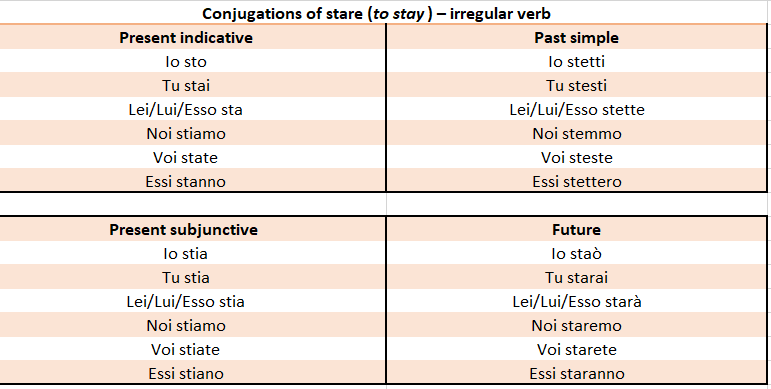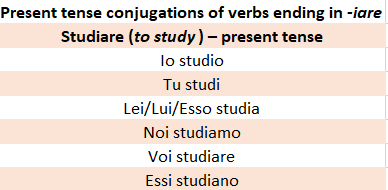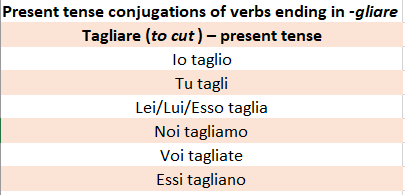This article takes you through the most common Italian verbs of the first-conjugation (-are).
Mangiare is one of the most used Italian verbs, but what is its conjugation? As you may have already noticed, the infinitive form of all Italian regular verbs can end in three different ways: -are, – ere and -ire. These categories are referred to as first (-are), second (-ere) and third (-ire) conjugation.
Since the infinitive form (infinito) consists of “to” + verb, in English there isn’t such thing as ‘conjugation’. But don’t be scared! In this article, you will study everything you need to know about the first conjugation. Do not forget to check out our study materials for both the second and the third conjugations!
First-Conjugation Verbs
All the Italian verbs ending in -are are called first-conjugation verbs (or -are verbs). Therefore, you may easily form the present tense of any regular -are verb by dropping the infinitive ending (-are) and adding the appropriate ending, based on the verb tense and the subject.
Other First-conjugation Verbs:
- Sposare (to marry)
- Cucinare (to cook)
- Spiegare (to explain)
- Sospettare (to suspect)
- Analizzare (to analyse)
“One of the most important areas we can develop as professionals is competence in accessing and sharing knowledge”
To learn more about Italian language, ENROLL NOW to our Italian Course
Different First-conjugation Verbs
1. Verbs ending in -care and -gare
The rule with this kind of -are verbs is very easy to remember. You just need to add an “h” after the root of the second singular person (you, tu) and the first plural person (we, noi). Don’t forget that usually these verbs maintain the hard “c” or “g” sound!
See conjugation and examples for cercare.
2. Verbs ending in -ciare, -sciare and -giare
With verbs ending in -ciare, -sciare and –giare, you need to be careful when you build some of their verb tenses. The “i” of the roof is dropped when the declination starts with “e” or “i”: this can be especially noted while analysing the future tense. However, the present tense is very easy to form, and there are no particular rules to take care of.
See also conjugations and examples for lasciare, and mangiare.
3. Verbs ending in -iare
See conjugations for studiare.
4. Verbs ending in -gliare
5. Verbs ending in -gnare
Irregular first-conjugation Verbs
Irregular verbs are those that do not follow the typical conjugation patterns of their conjugation. They may present some variations to their stem, their normal ending or both their stem and ending. Within the -are conjugation, there are three irregular verbs: andare (to go), dare (to give) and stare (to stay).
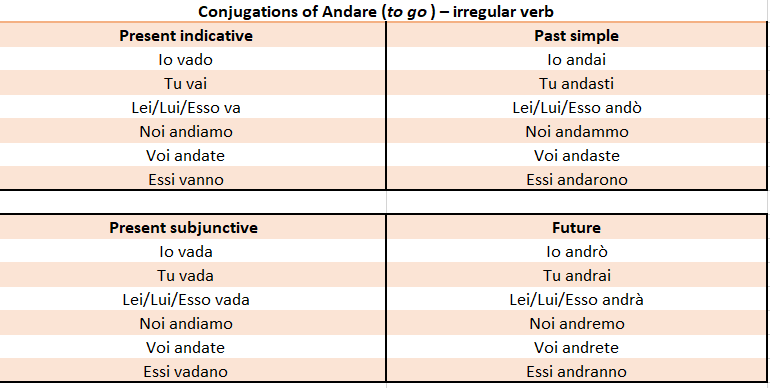
See conjugations and examples for andare.
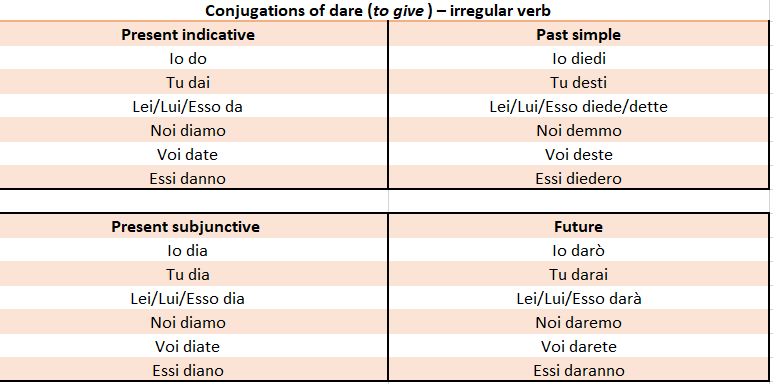
See conjugations and examples for dare.
